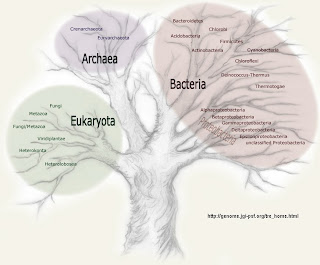The following press release appeared on EurekAlert [
Students benefit from undergraduate research opportunities].
Students benefit from undergraduate research opportunities
Many pursue advanced degrees in science, technology, engineering and mathematics
Undergraduate students who participate in hands-on research are more likely to pursue advanced degrees and careers in science, technology, engineering and mathematics (STEM) fields, according to a new study.
The study's authors state that National Science Foundation (NSF) and other entities' efforts to encourage representation of underrepresented groups in STEM fields appear to be effective.
For example, students who entered 2-year colleges were as likely as those who entered 4-year colleges or universities to participate in research. And undergraduate researchers were more likely than non-researchers to pursue a doctorate.
"This study indicates that carefully designed undergraduate research experiences motivate students," said Myles Boylan, program director for NSF's Course, Curriculum and Laboratory Improvement Program in the Divisions of Undergraduate Education and Graduate Education. "Students consider their research experiences to be effective previews of doing STEM graduate work as well as good learning experiences."
Many of the talks and discussions at the recent Experimental Biology meeting in Washington focused on the value of the undergraduate research experience. There were a lot of talks noting the correlation between students who went on to graduate school and students who did an undergraduate research project. Most assumed that it was the undergraduate research experience that motivated students to apply to graduate school.
I'm a little disappointed in these claims. As a scientist, I'm well aware of the fact that a correlation does not prove a cause. In my school, the undergraduates know that you have to do an undergraduate research project in order to enhance your chances of getting into graduate school. Thus, students who are motivated to go to graduate school will choose to do an undergraduate reseach project. I'm not sure that the undergraduate research experience is what motivates students to apply to graduate school or whether it is the motivation to go to graduate school that causes students to choose an undergraduate research project.
In my experience, the undergraduate research project is a fourth (senior) year phenomenon. Usually the application to graduate school has to be sent in before Christmas and the GRE's have to be written long before that. To me this suggests that the motivation precedes the research experience but then I'm just a scientist. What do I know about these things?
Don't get me wrong, I think research experience is a wonderful thing. My concern is that its value is being hyped at the expense of other ways of acquiring knowledge and motivating students to pursue a career in science.
At the meeting, I attended ten different talks on undergraduate research. There wasn't a single talk about how to improve the teaching of basic concepts and principles in biochemistry and molecular biology. Is this a problem? You bet. Several of the speakers revealed some misunderstanding of those very concepts and principles. This leads me to suspect that they are concentrating too much on the "doing" of science and not enough on the understanding.
 According to the US Defense Department, Canada is planting coins containing secret radio transmitters on US Defense contractors travelling in Canada ['Poppy quarter' behind spy coin alert]. The coins are the 2004 commemorative quarters issued to remember those who died in Canada's wars. The coins have a red poppy in the center [In Flanders Fields].
According to the US Defense Department, Canada is planting coins containing secret radio transmitters on US Defense contractors travelling in Canada ['Poppy quarter' behind spy coin alert]. The coins are the 2004 commemorative quarters issued to remember those who died in Canada's wars. The coins have a red poppy in the center [In Flanders Fields].







